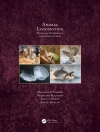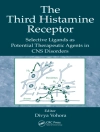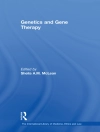Although fatigue has been actively investigated for more than 100 years, we have progressed little in either its theoretical or practical understanding. Fatigue has been considered to be both a symptom and an illness. Fatigue is a primary reason for patient visits to the physician’s office, but it is difficult to measure and offers doctors little important information for diagnosis. Fatigue as a Window to the Brain gathers experts on a wide variety of disorders to consider what the presence of fatigue tells us about how the brain works-more specifically, to identify the neural mechanisms potentially responsible for fatigue. The book looks at many of the major conditions in which fatigue is observed, with the hope that patterns may emerge that will suggest paths for future research. It will be of interest to neuroscientists, clinical researchers, and physicians and other clinicians.After discussing the nature of fatigue-its history and epidemiology and its assessment, measurement, and interpretation-the book turns to specific conditions associated with fatigue. It considers neurological conditions, including multiple sclerosis and stroke; psychiatric conditions as well as the overall treatment of fatigue in psychiatry; and general medical conditions, including HIV, heart disease, lupus, cancer, and others. The book then offers an overview of treatment approaches. It concludes with a definition of fatigue-both "primary" and "secondary"-and suggestions for future study.
John DeLuca
Fatigue as a Window to the Brain [PDF ebook]
Fatigue as a Window to the Brain [PDF ebook]
Achetez cet ebook et obtenez-en 1 de plus GRATUITEMENT !
Langue Anglais ● Format PDF ● Pages 360 ● ISBN 9780262271448 ● Éditeur John DeLuca ● Maison d’édition The MIT Press ● Publié 2007 ● Téléchargeable 3 fois ● Devise EUR ● ID 7972723 ● Protection contre la copie Adobe DRM
Nécessite un lecteur de livre électronique compatible DRM












